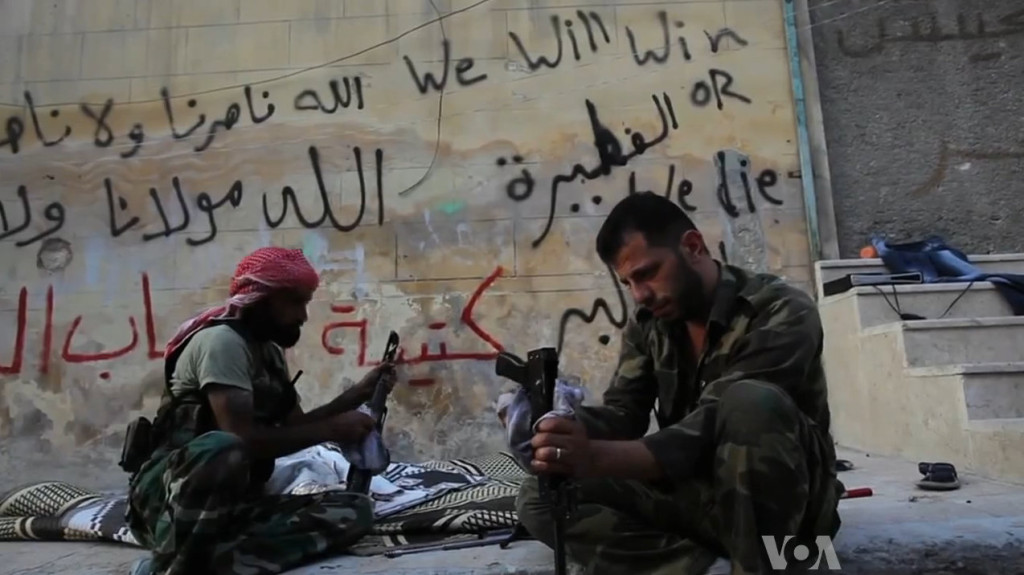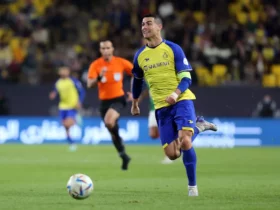
In March 2011, a few teenagers painted revolutionary slogans on a school wall in Deraa, a city in southern Syria. They were arrested and tortured by local law enforcement, sparking demonstrations. Security forces opened fire on the demonstrators, killing several, which prompted nationwide protests demanding President Bashar al-Assad’s resignation. The government responded harshly to crush the dissent, sending tanks to Deraa and hitting homes in the city of Homs with rockets and mortars. By August 2012, the fighting had reached the capital city of Damascus and a second major city, Aleppo. This prompted the military to launch a large-scale offensive to regain control from the rebels. Refugees have been flooding into neighboring countries, mostly to Turkey in the northwest, but also to Jordan, Lebanon, and Iraq. Millions more have been internally displaced due to the intense fighting. The government soon began bombing many major cities, targeting security facilities. Government officials have blamed the bombings on terrorist groups linked to al-Qaeda. There is no proof that this is the case, and the Free Syrian Army claims that the government planted the bombs to discredit the opposition. There are known Islamist militants operating in Syria and the al-Nusra Front has claimed responsibility for several of the bombings. There have been reports of massacres carried out by government loyalists, but the government claims no responsibility and points the finger at the terrorist groups. The International Committee of the Red Cross assessed the Syrian conflict as a “non-international armed conflict”. (http://www.bbc.co.uk/news/world-middle-east-19331551)
Recently, Syria has sent shells rocketing across the border and into Turkey, killing citizens. The Turkish parliament has authorized military action, yet Ibrahim Kalin, a senior advisor to the Turkish Prime Minister Recep Tayyip Erdogan, states, “Turkey has no interest in starting a war with Syria…but Turkey is capable of protecting its borders and will retaliate when necessary.”
Civil unrest continues in Syria and the international community seeks ways to address an escalating situation. Professor Laurie Brand, an expert on the international relations in the Middle East and North Africa, provides insight into the situation:
Q: How much do you think the Syrian uprising was influenced by the Arab Spring? Was this a spillover?
A: “…I think had the president … not met [demands for reform]with just the most meaningless and scornful responses, I think that it’s clear that … had there been any kind of a good faith move…I don’t think this would have happened…If [the Syrian people]had seen some measure of positive response, I don’t think they would have engaged in this kind of opposition, but it was the excessive violence and…though I think that the broader context does play a role, I also think that the regime…brought a lot of this on themselves.”
Q: Focusing more on the Turkey-Syria relationship, it seems to me that there’s been a gradual deterioration of relations between the two. Are you surprised by the recent cross-border shelling?
A: “…it’s not surprising for several reasons that we’re seeing cross-border shelling. It hasn’t reached, and hopefully it won’t but one doesn’t know, the point of what we would call ‘extended engagements’ but there are several things at work. One is that from the beginning Turkey was the first major refuge for Syrians fleeing the fighting. So you had Turkey playing a role in hosting a growing number of Syrian refugees, so…the animosity between the two states emerged…the Free Syrian Army basically [has]their headquarters in Turkey and a number of meetings for various configurations of the opposition [are]also being hosted by the Turks. So clearly the border becomes an important point of negative contact between the two. The other element is that the Free Syrian Army…[has]managed more successfully in the northwest of the country to, at least temporarily, claim areas as under their control, and that’s the area that borders Turkey. So to the extent that the Syrian government is seeking to try and dislodge them or defeat them, that’s going to be the area that they are most likely to go after.”
Q: Was this a planned attack from the Syrian government to draw Turkey into the conflict?
A: “…there have been a number of instances of Syrian shells falling on the Turkish side, but it was the first time last week that there were actual casualties…so while the Turks had…watched warily before, once you start having your own citizens…killed, [Turkey] has a responsibility toward [its]own citizens, and they have to do something. As I understand it, there is a great deal of support in Turkey for greater vigilance…certainly not yet for any kind of all out invasion into Syria. I don’t think that’s what the Syrians want. I’m guessing that the fact that you have shells falling across the border has more to do with imprecision in the actual shelling than it does with Syria trying to pick a fight with the Turks. The last thing they need at this point is a NATO force invading their country from the north. The Syrians are not, I can’t imagine that would be something they’re actually courting. To me if they’re thinking logically, and maybe some…are not thinking logically, maybe they just want to put the Turks on notice…[to not]be supporting the Free Syrian Army, but just assuming that there wouldn’t be support in Turkey for any larger intervention. And that may be an accurate calculation, but I think it’s a very dangerous one to be making at this point.”
Q: How likely do you think it is that NATO and/or the UN will intervene in some way?
A: “…as long as the Russians and/or the Chinese maintain their position there is not going to be any sort of UN action, as was the case with Libya. The only other entity that could put some sort of force together would be NATO. The Libyan intervention, I think, didn’t go as was planned (in the end yeah Qaddafi was overthrown, but it went on much longer than anyone anticipated). Syria is much more problematic than Libya in terms of geography, size of population, concentration of population, and the efficiency of the Syrian army…had NATO not intervened I think it was very clear that the rebels would have been defeated in Libya…with that experience as backdrop, I think it was very instructive for NATO, so it’s difficult for me to imagine a NATO intervention. If you could stand back as an analyst, interested in the role that conflict in one region can have in spilling over, you can actually see the dynamics of a spillover, and that’s very scary. If this becomes a wider configuration, if Lebanon [and southern Turkey]get drawn in more fully…and Iraq is not fully stable…there is also the possibility of some kind of spillover and interaction there. Jordan is clearly very concerned [about the spillover], and the United States has sent all of these troops and advisors regarding how to deal with refugees and how to deal with the possibility of perhaps use by the Syrians of their chemical weapons capability. It’s possible that if this does take on more of an ‘extra-Syrian’ character that one could see some sort of intervention, but if it remains largely limited to inside Syria, I think that the international actors who are concerned in one way or another have demonstrated that they are not willing to become involved militarily.”
Since this interview was conducted (Wednesday October 10, 2012), Turkey has impounded a Syrian jetliner on the suspicion of carrying Russian munitions. There have been rumors that Syria has been sending planes over to the border (in preparation for an attack?) and that the Turkish government is growing weary of supporting the rebels from behind the scenes.
What will happen next remains to be seen; however, I think it is safe to say that this conflict is not going to be resolved any time soon. There are too many actors, both within and outside of Syria, and the complexity of the situation will not help bring about a quick resolution. Despite efforts to negotiate a ceasefire and contain the situation, it does not look promising. Syria’s revolution may soon become Turkey’s war.






